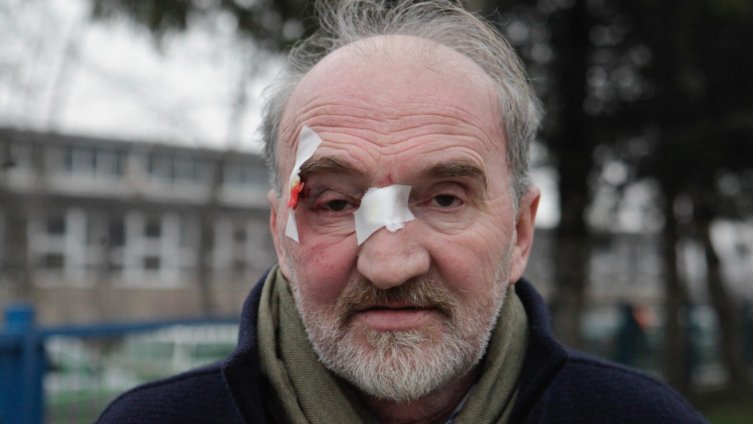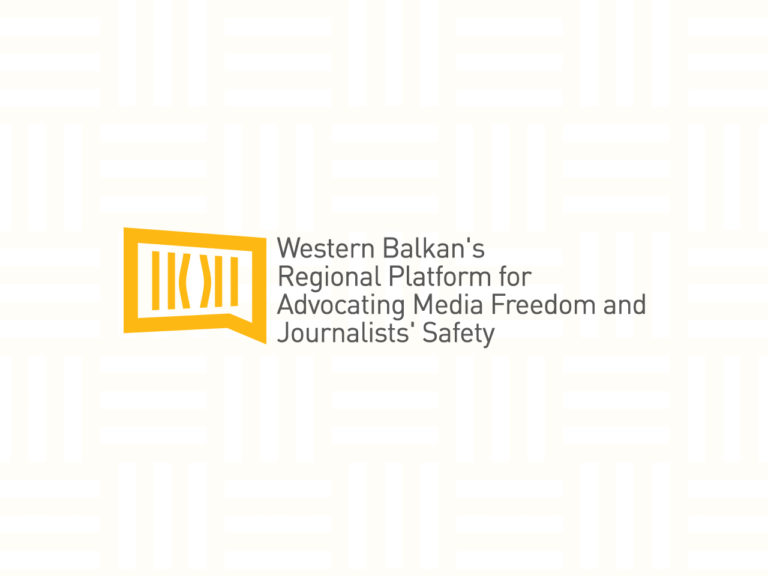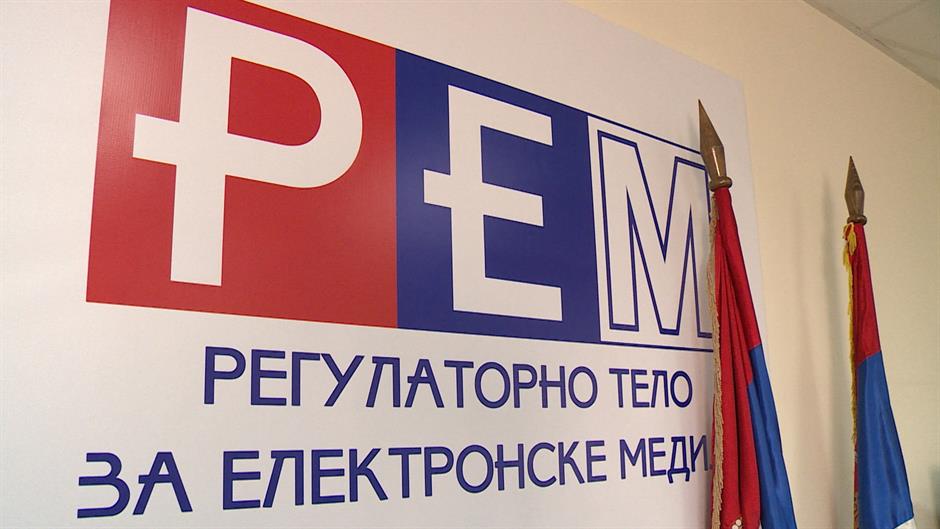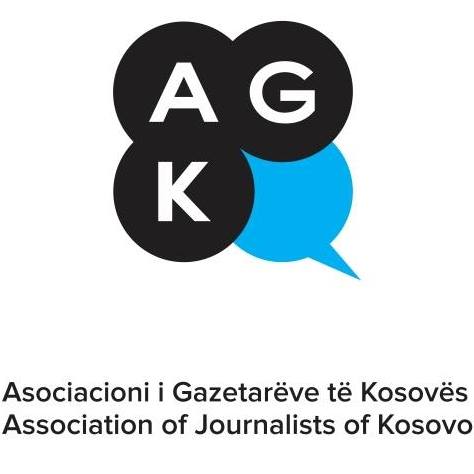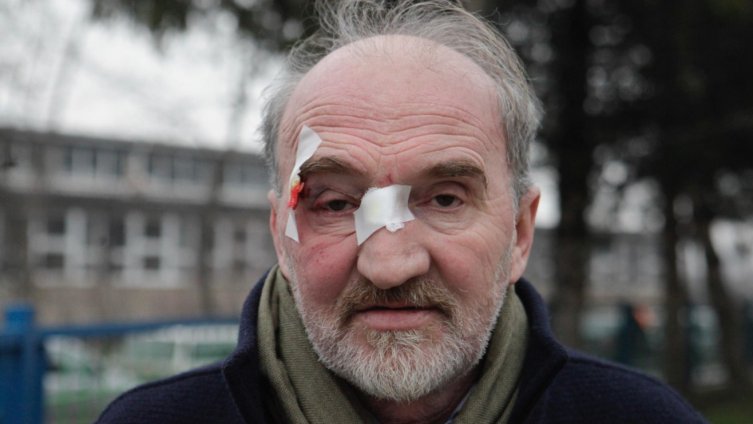BELGRADE, 23.02.2018. – As long as the Regulatory Authority for Electronic Media (REM) does not really perform its function, it is unrealistic to expect broadcasters to respect the public interest, legal paragraphs, professional and ethical standards.
More than 300 complaints against TV Pink, sent to the Regulatory Authority for Electronic Media (REM), because of the smear campaign conducted on this television against journalist Tamara Skrozza is just another in a series of controversies that, almost from the very beginning, follow this regulatory body.
The complaints were followed by the initiative of the Independent Journalists Association of Serbia (NUNS) and the Center for Research, Transparency and Accountability (CRTA).
The action of the NUNS and the CRTA was preceded by a presentation of the report, in particular the analysis of media reporting in the period prior to the start of the official campaign for the Belgrade elections which is thought to have been a trigger for the smear campaign on TV Pink. Findings of this monitoring have proved unequivocally that there is unequal media coverage of political actors and that so-called “Functional campaign” is present in our media.
Among the authors of the CRTA report was also a respective journalist Tamara Skozza, a member of the Press Council Appeals Commission. This was a sufficient reason for publishing media report for in Dnevnik TV Pink, but also other informative programs of that television, which in the worst way brought into question the professional and moral integrity of Ms. Skrozza and which was also proclaimed as “the archenemy of Aleksandar Vucic”, the president of Serbia.
In the same media report on the TV Pink, with a tendency of twisting the facts they attempted to compromise the CRTA, a civil society organization founded in 2002, with a mission to contribute to a successful transition of Serbia into a developed democratic society through the promotion of active citizen participation in social processes.
REM ignores citizens’ reports
The number of complaints submitted by journalists and citizens is increasing every day but, until now, there is still no reaction from REM.
REM is, as defined by the Law on Electronic Media, “independent regulatory organization with the capacity of a legal entity, which performs public authority in order to: effectively implement the established policies in the field of providing media services in the Republic of Serbia; improving the quality and diversity of electronic media services; contribute to the preservation, protection and development of the freedom of thought and expression; in order to protect the public interests in the field of electronic media and the protection of users of electronic media services, in accordance with the provisions of this law, in a manner appropriate to a democratic society”.
According to the law, the Regulator is functionally and financially independent from the state bodies and organizations, media service providers and operators. For performing tasks within its competency REM is responsible to the National Assembly.
This broadest legislative framework of the Regulator’s competency does not differ much from similar bodies in any country. But almost from the very beginning of the establishment of this body, REM is subject of very fierce controversy, with a number of allegations that its (non)action is one of the main causes of the chaos in media ether. Frequently, REM was accused of being influenced by some broadcasters but also by political organizations, most often those in power.
An inadequately interpretation of the legal paragraph
One of the characteristic cases is the direct broadcasting of a party convention by the ruling Serbian Progressive Party (SNS) on many national, but also regional, and local TV frequencies.
On that occasion in October 20, 2015 Independent Journalists’ Association of Serbia submitted complaint to REM against TV Pink, TV Happy and TV Studio B. These televisions directly broadcasted the meeting of the SNS party, on the occasion of the seventh birthdays of the party. IJAS considered that in this occasion broadcasters violated General Mandatory Guidelines on Broadcasters’ Behavior which prohibits political propaganda out of the pre-election campaign, but also Article 47 of the Law on Electronic Media, which clearly states that the media service provider, in accordance with its program concept, “is obligated to respect banning political advertising out of the pre-election campaign.”
On the 21th October the Council of REM after a three-hour session, found that when set of new media laws came into force the General Mandatory Guidelines for Broadcasters Behavior ceased to be valid, and because of that there were no ground to initiate a procedure for determining the responsibility of televisions which directly broadcasted the meeting if ruling party.
IJAS requested from Mr. Tasovac (in that time Minister of Culture and Information) that the Government of Serbia send a request for an authentic interpretation of Article 47 of the Law on Electronic Media to the Assembly IJAS also requested from the Media Department of the OSCE Mission an interpretation of whether the adoption of a set of new media laws ceased to be valid General Mandatory Guidelines on Broadcasters’ Behavior and is it means that it is allowed to broadcast in the future any political party conferences/meetings out of the pre-elections campaigns without any sanctions.
The Ministry of Culture rejected our request to the Government of Serbia to send a request to the National Assembly for the authentic interpretation of the provision of Article 47. The explanation states that Article 47, paragraph 1, item 5, stipulates that the media service provider is obliged to respect the prohibition of political advertising out of the pre-election campaigns, and during the pre-election campaigns they are obligated to provide to the registered political parties, coalitions and candidates presentation in the media without discrimination.
The Ministry has reduced the whole problem to linguistic confusion, and they also said that “advertising” and “advertising message” is defined by the Law on Advertising. They suggested to IJAS to contact the Ministry responsible for overseeing the implementation of the Law on Advertising and request an opinion about this confusion.
And this phenomenon remains as a problem. This precedent case of the broadcasting of the political party conferences/meetings out of the pre- election campaigns has become a common practice in most pro-government electronic media.
OSCE warning
In the OSCE response, however, it was clearly stated that “in regulating the general obligations of media service providers (broadcasters) or TV companies, in relation to the content of the program, the Law provides that a media service provider will respect the ban on political advertising out of the pre-election campaign.”
The OSCE also reminded that during the pre-election campaign, media service providers are obliged to ensure that all registered political parties, coalitions and candidates enjoy the same presentation in electronic media without any discrimination. The OSCE also stated that the supervision over the implementation of the Law of Electronic Media is under the authority of the Regulatory Body for Electronic Media.
Regardless of this attitude, REM didn’t do anything and once again put into question its credibility.
Perhaps an even more drastic example is the IJAS’s request to REM, after the parliamentary elections in 2016, to publish a report on the control over the work of broadcasters during the election and pre-election campaigns.
After three months, after IJAS sent the complaint to the Commissioner for Information of Public Importance and receiving the decision from this institution, REM sent a notice that “the regulator does not have this report and therefore cannot provide it to the public.”
The public was rightly in doubt about the truthfulness of this reasoning, because, for the first time since 2003, when the REM was formed, such a report, allegedly, was not made.
Such reports are in the legal jurisdiction of the Regulatory Body and they were made for campaigns on all parliamentary, presidential and local elections in Serbia since 2003. But not for the elections held on April 24, 2016?
Why is the question of public interest, to which REM has never responded despite the speculation that the report exists and shows a huge disparity in the treatment of ruling and opposition political parties in the electronic media.
Criminal charge for disrespectful treatment
A similar situation occurred on the occasion of the presidential elections in 2017. At the end of May last year, IJAS filed a criminal charge against deputy chairman of the REM Council, Goran Petrović and members of the REM Council, Miloš Rajković, Slobodan Veljković, Božidar Nikolić, Olivera Zekić, Aleksandar Jankovic, Goran Peković, Đorđe Vozarević and Radoja Kujović on suspicion of having committed the criminal act of “negligent treatment at work”. The charge was filed on grounds of reasonable doubt that Article 47 of the Law on Electronic Media “General obligations of media service providers in relation to programmed content” was violated, which stipulates that broadcasters must “respect the prohibition of political advertising out of the pre-election campaigns, and during the pre-election campaigns they are obligated to provide to the registered political parties, coalitions and candidates presentation in the media without discrimination.”
The reason was again unsuitable favoring the one presidential candidate in the electronic media and REM’s stayed silence again despite the fact that they are violated the law and the “Rulebook on Obligations of Media Providers during the Pre-Campaign” which was brought by REM on June 16, 2015. This Rulebook stipulates that during the pre-election campaign “the media service provider is obliged to broadcast political advertisements of all interested candidates under equal program, technical and financial conditions”. Also, each broadcaster is obliged to “distribute the time for political advertising to candidates in proportion to their expressed interest”.
The IJAS stated in a criminal charge that there was a reasonable suspicion that members of the REM Council “were in a conscious state apparently acting irrelevant in the performance their work, although they were aware that this could result in serious violations of basic human rights” guaranteed by the Constitution and the laws.
Request to Parliament for the removal of the REM Council
The Group for Media Freedom, formed at the end of 2017 on a wave of dissatisfaction with the existing media situation, which gathers more than 300 media, NGOs, journalists and media workers, requested from the Serbian Parliament to dismiss members of the REM Council and launch a procedure in which the new members will be elected and will act will in accordance with the law, applying all measures they have in protecting the basic rights of citizens to be timely, objectively and truthfully informed.
It remains to see what will be the destiny of the criminal charge and the request of the Group for Media Freedom. Although, if we have in mind REM’s behavior and silence on the smear campaign against journalist Tamara Skrozza and CRTA, it is difficult to expect any kind of stepping in the positive direction.
As long as the Regulatory Authority for Electronic Media (REM) does not really perform its function, it is unrealistic to expect from broadcasters to respect the public interest, legal paragraphs, professional and ethical standards.

This article has been produced as a part of the project Western Balkan’s Regional Platform for advocating media freedom and journalists’ safety with the financial assistance of the European Union. The contents of this article are the sole responsibility of the Independent Journalists’ Association of Serbia and its authors, and can in no circumstances be regarded as reflecting the position of the European Union.
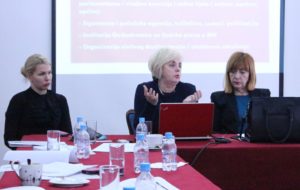 “Institutional support exists but is not efficient enough. There is a need for direct and public response, ex officio, which would condemn violence towards the defenders of human rights” , said the author of the analysis and the general secretary of The BH Journalists Association, Borka Rudić and added that institutions can, through practice show their engagement. Additionally, she added that activists who represent the rights of victims of war, gender-based violence, and LGBT activists and journalists are specially risk-exposed.
“Institutional support exists but is not efficient enough. There is a need for direct and public response, ex officio, which would condemn violence towards the defenders of human rights” , said the author of the analysis and the general secretary of The BH Journalists Association, Borka Rudić and added that institutions can, through practice show their engagement. Additionally, she added that activists who represent the rights of victims of war, gender-based violence, and LGBT activists and journalists are specially risk-exposed.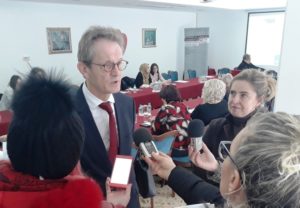 “The issue of security of human rights defenders is not typical for countries such as Bosnia and Herzegovina or the Netherlands. This is a question that requires a continuous struggle in every country, by the institutions and the non-governmental sector, women and men, “said Ambassador of the Kingdom of the Netherlands to BiH, Reinout Vos in addressing the participants.
“The issue of security of human rights defenders is not typical for countries such as Bosnia and Herzegovina or the Netherlands. This is a question that requires a continuous struggle in every country, by the institutions and the non-governmental sector, women and men, “said Ambassador of the Kingdom of the Netherlands to BiH, Reinout Vos in addressing the participants.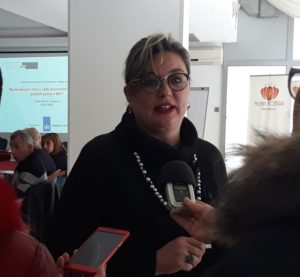 Director of the Agency for Gender Equality Samra Filipovic Hadžiabdić assessed that human rights defenders are often targets of attacks even though they have a specific and important role in society. “A document defining what is right on defending human rights, that would recognize human right defenders, is missing. The state must accept its positive and negative obligations, in accordance with international legal documents, “Hadžiabdić said.
Director of the Agency for Gender Equality Samra Filipovic Hadžiabdić assessed that human rights defenders are often targets of attacks even though they have a specific and important role in society. “A document defining what is right on defending human rights, that would recognize human right defenders, is missing. The state must accept its positive and negative obligations, in accordance with international legal documents, “Hadžiabdić said.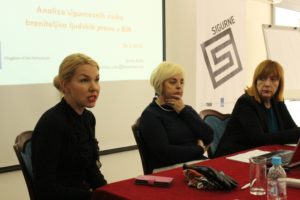 “The members of the Association of Women Police Officers are currently working on investigating cases of discrimination against women working in gender-based security agencies. This analysis should show the state of mind about what implies discrimination, how to protect yourself from it and how many police officers are endangered while performing official duties, “Jozic said.
“The members of the Association of Women Police Officers are currently working on investigating cases of discrimination against women working in gender-based security agencies. This analysis should show the state of mind about what implies discrimination, how to protect yourself from it and how many police officers are endangered while performing official duties, “Jozic said.

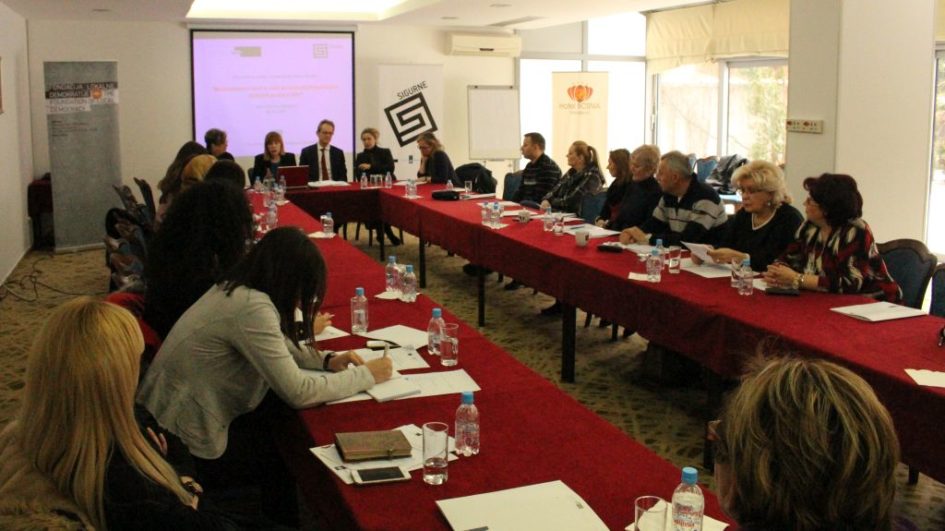
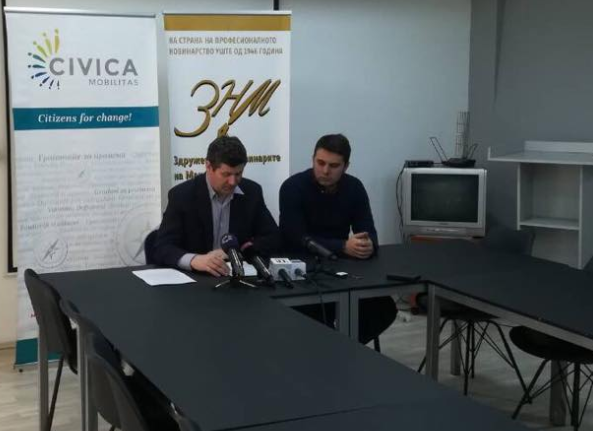
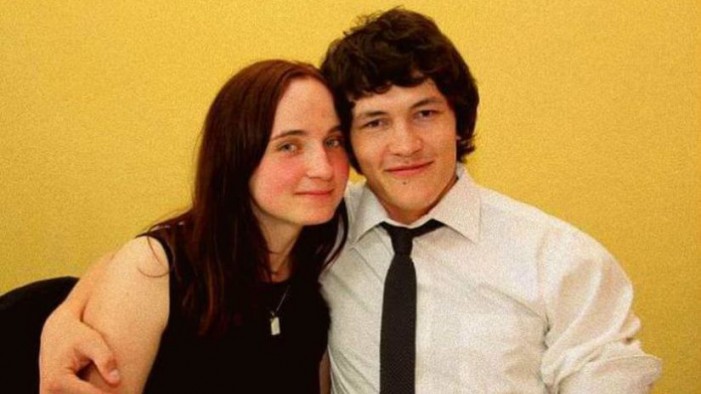
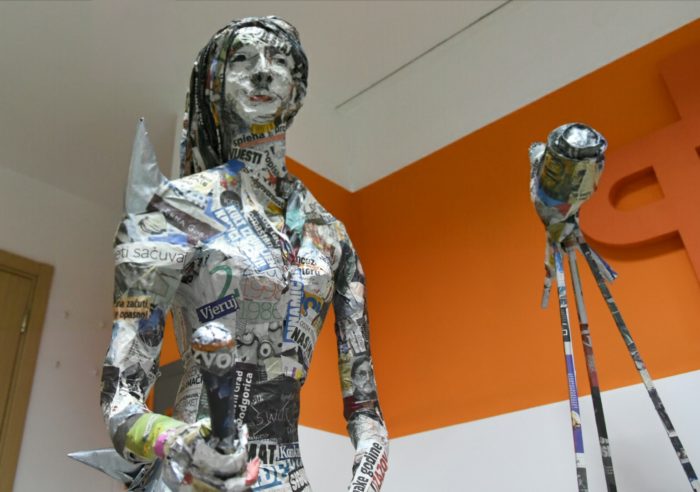
 This article has been produced as a part of the project Western Balkan’s Regional Platform for advocating media freedom and journalists’ safety with the financial assistance of the European Union. The contents of this article are the sole responsibility of the Independent Journalists’ Association of Serbia and its authors, and can in no circumstances be regarded as reflecting the position of the European Union.
This article has been produced as a part of the project Western Balkan’s Regional Platform for advocating media freedom and journalists’ safety with the financial assistance of the European Union. The contents of this article are the sole responsibility of the Independent Journalists’ Association of Serbia and its authors, and can in no circumstances be regarded as reflecting the position of the European Union.